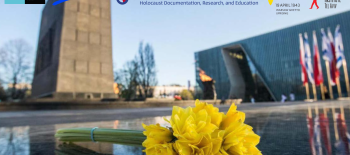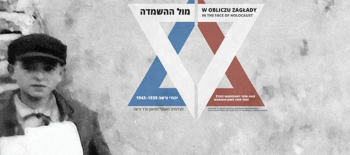Pope John Paul II Day is celebrated on October 16th as a memorial day for the Pope`s heritage, values and great personality and influence
Pope John Paul II Day (Polish: Dzień Papieża Jana Pawła II) is a Polish festival celebrated every year on October 16.
It was established by the Polish Parliament as a tribute to Pope John Paul II. In parallel, it is celebrated by the Catholic Church in Poland as Papal Day, which falls on the Sunday preceding the anniversary of the election of Karol Wojtyła as Pope.
On October 16, 1978, the Archbishop of Kraków Cardinal Karol Wojtyła was elected as Pope and took the name John Paul II. He was the first Pope in 455 years who was not Italian.
On the same day in 2002, Pope John Paul II introduced the Luminous Mysteries of the Rosary. (Katarzyno, nie wiem czy to jest ważne i w sumie nie wiem co to znaczy?:)
October 16 was established as an official celebration by the Polish Parliament on 27 July 2005 – as stated in the resolution – “a tribute to the greatest authority of the twentieth century, a man who reached into the sources of Christianity, taught us solidarity, courage, and humility”
Since 2001, the Polish Catholic Church has celebrated Papal Day, a day of gratitude, communion with Pope John Paul II and the promotion of his teaching. On Papal Day, money is raised for scholarships for talented Polish youth from low-income and poor families.
Cardinal Stanisław Dziwisz, Secretary of Pope John Paul II, Archbishop Emeritus of the Archdiocese of Cracow:
John Paul II ahead of his time.
In his lifetime, John Paul II was often reproached for having his eyes fixed on the past, for not understanding the present and for not keeping up with the world. Admittedly, his role in the communism overthrowing was widely recognised, but it was also believed that he was unable to find his place in the world of democracy and pluralism, in the global market of ideas where the Catholic Church must seek attention of people on an equal footing with others.
Today, however, fifteen years after he left for the House of the Father, we can see with what perspicacity he was analysing the reality, and how accurate were his predictions of the problems we are facing today. When the communist system in Europe was collapsing, most intellectuals expressed universal optimism, in the conviction that the era political and ideological confrontations was ending for good, and that from then on, a golden age of liberal democracy would continue without any more disturbances. It was then fashionable to talk about “the end of history”.
In times of progressive atomisation and anomie of social life, he was focusing on solidarity as a fundamental rule of collective life. For him, it was a social translation of love, inspired by the words of Saint Paul: “Carry one another’s burdens”.
It seems that the philosophical principle that has governed the order of his attitude to the world was personalism, building one’s life primarily on personal relationships, first of all with the person of God himself, and then with other people.
This personalism of the Pope refers us of the “First Person”, the person of God himself, whose primary quality in relation to all creatures is Mercy. It is not by chance that it became one of the main theological and pastoral motives of his pontificate.
It can be also read in the words spoken by the Pope in 2002 in the sanctuary of Łagiewniki, which still resound today: “In every continent, from the depth of human suffering, a cry for mercy seems to rise up. Where hatred and the thirst for revenge dominate, where war brings suffering and death to the innocent, there the grace of mercy is needed in order to settle human minds and hearts and to bring about peace. Wherever respect for life and human dignity are lacking, there is need of God’s merciful love, in whose light we see the inexpressible value of every human being. Mercy is needed in order to ensure that every injustice in the world will come to an end in the splendour of truth”.
Cardinal Stanisław Dziwisz
Seminar marking the 80th anniversary of the
We invite you to the seminar marking the 80th anniversary of the the Łódź Ghetto Liquidation that will take place at the Haifa University on 7 May 2024. During the event lecturers from Poland and Israel will present lectures on various subjects related to the history of the Łódź Ghetto
26
04.2024
Events, History
Invitation for a Zoom event with Nili
Zoom event that is dedicated to the international “Warsaw Ghetto Uprising” campaign that is currently taking place in Poland and Israel which aims to commemorate the Warsaw Ghetto Uprising and its heroes.
17
04.2024
Events, History
“In the face of the Holocaust –
The Warsaw Uprising Museum recently published 150 photos, including lesser-known photos from the Warsaw ghetto, photos from its establishment, photos from "daily life in the ghetto," and a series of 1945 photos of the ruins left in the ghetto area.
04
04.2024
01
06.2024
Events, History



